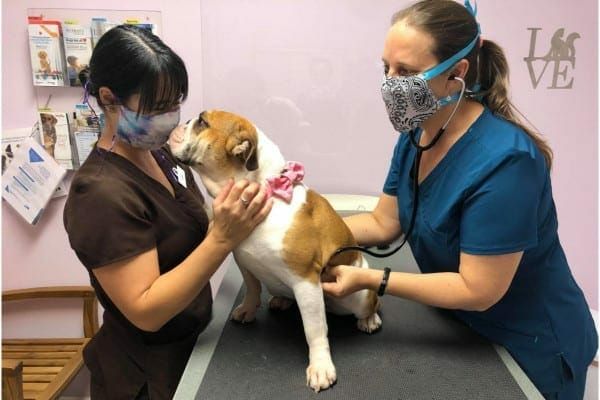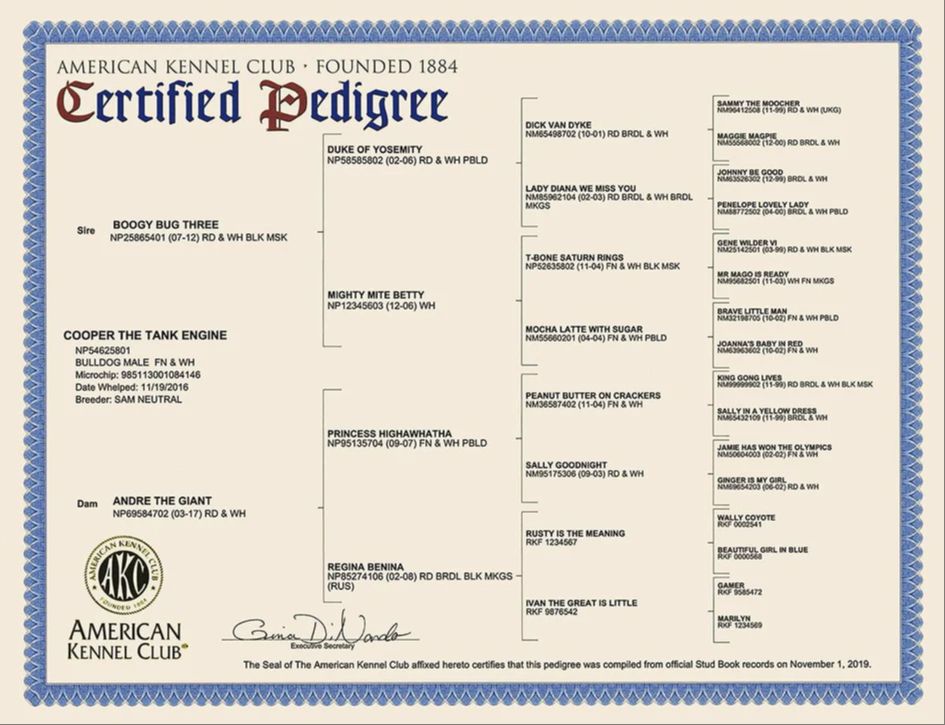Introduction
Having proof of ownership is extremely important for dog owners. Proof of ownership establishes you as the legal owner of the dog and provides documentation that the dog belongs to you. This is essential for a variety of reasons:
– Prevents disputes over ownership – With proper documentation, you can prevent disagreements over who owns the dog, such as during a divorce or if someone claims the dog is theirs.
– Provides identification if lost – Proof of ownership enables the dog to be returned if it gets lost or runs away. Identification like microchips or tags rely on accurate owner information.
– Allows access to veterinary care – Vets will want verification that you are the owner before providing medical treatment. Proof of ownership demonstrates you have the authority to get care for the dog.
– Aids in recovering stolen pets – If the dog is stolen, proof of ownership supports legal means to get the dog back and prosecute the thieves.
– Gives license to travel – Certain forms of proof may be required to fly on airlines, stay in hotels, visit dog parks, or travel to other states or countries with your dog.
– Needed for ownership transfer – You’ll need proof of ownership if you want to sell, gift or surrender the dog. This allows a smooth transition to a new owner.
Having credible proof you own your dog provides security, freedom and peace of mind as a pet owner. This article will explore the main forms of proof of ownership for dogs.
Registration and Licensing
Dogs must be properly registered and licensed according to local regulations. In most areas of the United States, registration and licensing is mandated by city, county or state laws. Registration provides identification for the dog and also serves as proof of ownership (“Dog Licenses – NYC Health”, 2022).

Licensing involves paying a fee and registering the dog with the appropriate government agency. Licenses are issued once owners provide proof of current rabies vaccination. Fees range from $10 to $50 per year depending on location. Licenses must be renewed annually (“Apply for a License or Registration”, 2023).
The main purposes of dog registration and licensing are to facilitate returning lost pets to their owners, ensure rabies vaccinations are current, and generate revenue for animal care and control services. Fines for failing to license your dog can run into the hundreds of dollars.
In summary, licensing and registering your dog is mandatory in most areas. By doing so, owners obtain proof of ownership recognized by law enforcement and animal control agencies. Keep the license tag securely fastened to your dog’s collar to fulfill legal requirements.
Microchipping
Microchipping is one of the most reliable ways to prove ownership of a dog. It involves implanting a small microchip, about the size of a grain of rice, under the dog’s skin. This microchip contains a unique identification number that can be scanned by veterinarians and animal shelters to access the owner’s contact information from a database registry. Some of the main benefits of microchipping dogs include:
Makes it easy to identify and reunite lost dogs with their owners. According to the American Veterinary Medical Association (source), microchipped pets have a much higher rate of being returned home.
Provides permanent identification. The microchip does not need to be replaced and lasts for the lifespan of the dog.
Painless procedure that takes just a few seconds to implant by a veterinarian. It does not require anesthesia.
Microchips are very difficult to remove or tamper with as they are implanted under the skin. This prevents theft or disputes over ownership.
Works together with registration. The microchip is useless without being registered to the owner’s contact info in a database. Most veterinarians handle registration during the microchipping.
While microchipping has some rare risks like failure or migration, it is generally considered extremely safe with no side effects according to veterinary experts (source). Overall, microchipping along with registration provides pet owners with reliable proof of dog ownership.
Veterinary Records
Veterinary records can serve as proof of ownership for a dog by showing you have been responsible for the dog’s medical care and expenses. Recent veterinary records listing you as the owner are especially strong evidence. Records over an extended period show consistency. According to [Just Great Lawyers](https://www.justgreatlawyers.com/pet-paperwork), “Proof of ownership can be as simple as your adoption record from the local shelter or as complex as the AKC registration record. Try to find something formal to rely on.”
Veterinary records don’t legally prove ownership, but they do document your role as caretaker and the person financially responsible for the dog’s health. This ongoing relationship with the vet, particularly records spanning years, can demonstrate your ownership when considered alongside other evidence. According to [First Street Pets](https://firststreetpets.com/how-to-prove-pet-ownership/), “Vet records, especially recent ones, don’t prove ownership per se, but do show that you are the person taking responsibility.”

If ownership is disputed, veterinary records showing your name, the dog’s name, treatments and your address can make a strong case that you are the legal owner. Have copies of all records readily available. Vet records may tip the balance if there are conflicting claims over who rightfully owns the dog.
Receipts
Using receipts for dog purchases or expenses can help establish legal ownership. Receipts showing you paid for the dog, medical care, supplies, or other major expenses can demonstrate your financial investment and responsibility for the dog. Keep receipts for the original dog purchase, vet visits, food, supplies, grooming, training classes, licenses, and anything else related to caring for the dog. These receipts help create a paper trail showing you are the primary caregiver and owner.
Some key receipts that may help prove ownership according to https://www.justgreatlawyers.com/pet-paperwork include:
- Adoption paperwork if adopted from a shelter
- Sales receipt if purchased from a breeder
- Veterinary invoices for medical expenses
- Pet supply/food purchase receipts
- Grooming service receipts
- Dog training class payment receipts
- Dog boarding receipts
Keep these receipts organized and stored in a safe place. Digital copies can be saved as back-ups. Having a clear paper trail of expenses and payments related to the dog can help demonstrate ownership if ever questioned legally.
Photos
Photos can serve as useful proof of dog ownership if they clearly show you with the dog over a period of time. The best photos to keep on hand include:

- Pictures that showcase any unique markings on your dog, like unusual coat patterns, scars, or tattoos.
- Photos that establish a timeline, like pictures of you with your dog as a puppy, adult, and senior. Dated photos are ideal.
- Images that show your dog in familiar surroundings like your home, yard, or car.
- Portraits and selfies that clearly show your face with the dog.
When using photos for proof, provide a variety of clear, high-quality images that span different times and contexts with your dog. Avoid blurry, unclear, or duplicate looking pictures. The more unique photos you have of your particular dog, the better.
Consider storing digital copies in multiple places like online drives or social media. You can also print physical copies to keep with ownership documents. Regularly taking and saving dated pictures with your dog establishes a photographic history you can rely on if ownership is ever questioned. (Source: http://www.3retrievers.com/photographic-proof-of-ownership.html)
DNA Testing
DNA testing is one way to conclusively prove ownership or parentage of a dog. Companies like Embark and AKC offer dog DNA tests that use cheek swabs to analyze your dog’s unique genetic profile. This can confirm if your dog is the biological offspring of a specific sire and dam. DNA tests can also be used in legal disputes over ownership by matching your dog’s DNA profile to samples held by you, a breeder, or other party claiming ownership.
The main benefit of DNA testing for proof of dog ownership is that it provides near irrefutable genetic evidence. As long as your dog’s DNA is on file with the testing company, you have scientific proof you are the legal owner. The drawback is that DNA testing can be more expensive than some other options. DNA collection kits cost $79-199 depending on the company and specific tests. Still, for definitively establishing legal ownership, DNA evidence can be worthwhile.
Pedigree Papers
Pedigree papers can serve as proof of ownership for a purebred dog. The American Kennel Club (AKC) offers official pedigree certificates that trace a dog’s ancestry for several generations. These pedigrees provide documented evidence that you own a purebred dog descended from other registered purebreds.
To get an AKC certified pedigree, you must first register your dog with the AKC. This requires providing details on your dog’s birth date, breed, sire, and dam. Once registered, you can order a pedigree certificate online from the AKC store. There are options for different pedigree formats tracing back 2-5 generations. The pedigree will feature your dog’s picture and ancestry information verified against AKC breed registries.
Since AKC pedigrees require purebred parentage information, they may not be possible for mixed breed dogs or dogs adopted without a known lineage. However, for owners with paperwork on their dog’s purebred background, a certified AKC pedigree can serve as documented proof of ownership and breed validity.

Will or Contract
Using a will or contract is another way to show proof of ownership for a dog. If the dog was left to you in a will after the previous owner passed away, the will itself serves as legal proof that you now own the dog.
You can also draw up a dog ownership contract when receiving the dog as a gift from the previous owner. This contract legally transfers ownership from the old owner to you. The contract should include details like the dog’s name, microchip number, date of ownership transfer, previous owner name, new owner name, and signatures from both parties.
Here are some dog ownership contract templates that can be customized with your information:
Transfer of Ownership Agreement
Agreement to Transfer Pet Ownership
Having a signed contract or will that specifies you as the new legal owner provides straightforward proof that the dog belongs to you.
Conclusion
In conclusion, there are several key ways to get proof of ownership for your dog. The most common options are registration and licensing through your local animal control agency or municipality. This requires registering your dog and keeping the license current by renewing it annually. Microchipping your dog and keeping the microchip registry information up-to-date is another way to prove ownership. Maintaining veterinary records that show you as the owner and person responsible for the dog’s care is also important. Keeping receipts for major purchases related to your dog can help establish ownership as well. Photos documenting your time with the dog over the years provides additional evidence that the dog belongs to you. For purebred dogs, pedigree papers and registration with a kennel club like the AKC can serve as proof of ownership. Having a will or contract that specifies you as the legal owner of the dog is useful too. Using a combination of these methods is the best way to get solid proof of your ownership of a dog.